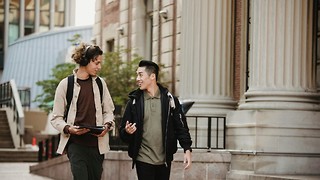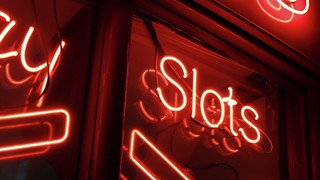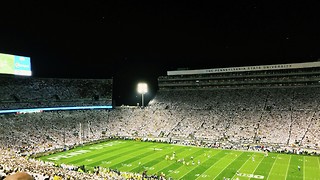Interview: Jessica Raine
Jasmine Walter sits down with the Call the Midwife star to discuss the troubling lack of diversity in film and TV

Ranging from a series of bolshie teenagers to a diligent midwife in the 1960s, actor Jessica Raine has certainly played a wide spectrum of female characters in her time. Last weekend she was one of the panel members at Watersprite Film Festival’s discussion on diversity (controversially entitled ‘Still Male, Pale and Stale?’) and I sat down with her afterwards to learn more about her unique insight into the position of women in the creative industries.
After a warm greeting and mutual fist pump at the recognition that it was International Women’s Day, Raine was quick to clarify that “I do not hate men – in fact, I love men”. Radical misandry aside, it was clear that feminism is something very important to the 32-year-old actress as she admitted having felt restricted by specific roles, citing instances where she had particularly felt the constraints of gender stereotypes; “There were definitely moments where, for example, I was in a scene playing husband and wife, and they’d tell me to unload the dishwasher in the background,” she recalls with a grin. Despite the light tone of her voice, there was a clear mutual understanding that media and the reflections of domestic relationships in the entertainment industry were not as progressive as one would hope.
The prevalent issue of female and BME underrepresentation in the television and film industry was the underlying theme of the Watersprite panel discussion, and all speakers acknowledged that this is a pervasive issue which we simply can’t ignore. In light of recent related events, such as the #OscarsSoWhite controversy (with 94 per cent of voting Academy members being white and 77 per cent being male) I asked Raine where she thinks the root of such gross underrepresentation lies. She responded regretfully, “I think it’s historical. I think that women have always been written out of history quite a lot and I think it’s about perception and who’s writing the history, and unfortunately there seems to be the thinking that females are the weaker sex, somehow.”
Given the incredible power the entertainment industries have to affect a mass audience and influence public thought, it must be questioned how far these industries have a responsibility to promote egalitarianism and equal representation. Raine argued that such a job was fundamentally important, but not merely restricted to the creative industries. Referencing Denmark, she noted, “the government really look after their women – they have amazingly inexpensive childcare and much more equal standard in government. So I guess it’s really an issue that goes right through society”. Thus, while shows and films do arguably have an obligation to represent their social and culturally diverse audience, the problems are far more widespread and need to be tackled from all angles, not just the media.

One interesting concept that Raine drew from her personal experiences in the industry, both in the discussion and our interview, was the idea of the ‘strong female lead’ and the dichotomy that this conception presents. On the one hand, it’s important to give recognition to ‘feminist’ shows like the breakthrough BBC programme Call The Midwife, which she referred to as an “anomaly” due to its predominantly female production team and almost exclusive on-screen focus on the lives of women.
However, Raine also recognised a double standard that comes alongside female leads and argued that women have much more to offer than their roles normally allow. She mused, “I think there’s a myth of wanting to play a strong female character and that shouldn’t be the case – what we should aim for is an interesting woman character. Women can be weak, women can be spineless, women can be everything that a man can be.” Thus, Raine shifted the focus from the notion of women characters having to be strong and independent and instead stressed the paramount importance of celebrating independent traits – even if they are commonly perceived ‘weaknesses’. It is not about being strong and flawless; it is about the audience making an empathetic connection with a character. It is fundamentally about being human. She summarised this point, “just finding interesting human things about someone… That is the most important thing.”
But what is the future for the television and film industry? It’s all very well reflecting on the past and present, but surely we must look forward in order to progress. Proposing these speculations to Raine, she responded with a smile, “I think the transparency of debate is getting bigger, so optimistically I am going to say things will have changed – because ultimately we have to have that attitude for things to change.”
 News / Uni welcomes new students14 August 2025
News / Uni welcomes new students14 August 2025 News / Trinity sells O2 Arena lease for £90m12 August 2025
News / Trinity sells O2 Arena lease for £90m12 August 2025 Features / The community Cambridge accommodation creates (and doesn’t)9 August 2025
Features / The community Cambridge accommodation creates (and doesn’t)9 August 2025 News / Locals urge University to fund River Cam repairs16 August 2025
News / Locals urge University to fund River Cam repairs16 August 2025 Features / Incoming freshers and their hopes, fears and expectations for Cambridge 12 August 2025
Features / Incoming freshers and their hopes, fears and expectations for Cambridge 12 August 2025









